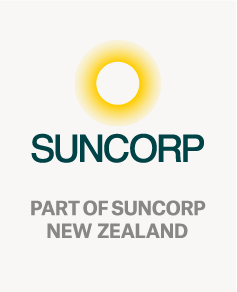Severe weather: For urgent assistance call 0800 800 134.
Submit your claim online here. General FAQ's at Wild Weather Hub.
Your industry risk report
Most common claims for Tradies
Burglary/Theft
62%
Accidental damage/Loss
19%
Weather events
8%
Burglary/Theft from vehicle
7%
Water damage/Burst Pipes
1%
Impact damage
1%
Fire/Explosion/Arson
1%
Source: Vero New Zealand Claims 2022-2025
The 3 top causes – and what you can do to avoid them
Burglary/Theft
Having any property stolen – whether it’s personal or owned by your business – can be a distressing experience. You can reduce these risks by:
- Installing physical and electronic protection
- Installing good quality intruder alarms
- Having CCTV available
- Deploying regular security patrols.
To find out how, check out the fact sheets and toolsOpen
Accidental damage/Loss
Accidents happen. But knowing the risks can protect property, equipment and people. You can reduce them by:
- Having a risk-aware culture at your workplace
- Doing regular maintenance checks
- Training your staff
- Introducing clear operating procedures.
To find out how, check out the fact sheets and tools Open
Weather events
We all know how changeable NZ weather can be. From storms and high winds to hail, snow and lightning – these events can all cause damage to property. You can reduce these risks by:
- Ensuring your building is well maintained and weathertight
- Making sure gutters and yard drains are kept clear
- Checking overhanging branches and nearby trees
- Securing outside stock, plant and equipment
- Clearing snow from roofs and gutters (if safe to do so).
To find out how, check out the fact sheets and toolsOpen
Keep in mind that things like fire – while it may have a lower claims frequency – can be equally, if not more, devastating.
That’s why we’re helping you understand a range of risks for your business.
To help you, our specialists have compiled a range of information sheets that cover off typical risks.
They might not all be relevant to your specific business, but there are lots of helpful hints and essential ‘must have’ precautions.
Industry risk guide
download iconTradies Depots
download iconTradies On-site
Specific watch-outs
Deeper insights and more detailed information for the most frequent, or significant, kinds of claim.
Fire
download iconHot work
download iconLithium-Ion Batteries
download iconLPG
download iconFlammable Liquids
Vehicles & Driving
download iconStaying safe while on the move
download iconTake your journey planning up a gear
download iconElectric Vehicles
code insert here
The information presented is of a general nature only and is provided only to help you understand some of the physical risks a business may have and what an insurer might expect you do to manage those risks. It is not intended for any other purpose. You should always seek appropriate professional advice about how you manage the particular risks in your business. No representation or warranty, expressed or implied, is made as to the accuracy or completeness of the information and no responsibility is accepted for any loss, penalty or damages (including special or consequential damages) arising out of the use of all or part of the information. The information presented does not replace the need for appropriate professional advice. Reliance on this communication will not affect or influence policy response.
